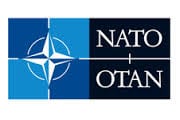
The NATO Allied Command Transformation and NATO Communications and Information Agency (NCIA) launched a new independent research project on Monday with the RAND Corp. to examine how to streamline the alliance’s cyber capability development and acquisition process, NCIA said TuesdayNATO said the project aims to define the challenges NATO faces as it adjusts its cyber acquisition processes and to make recommendations on how to address them.The NATO-RAND project will include activities required to develop a report on the “Improvement of…

 By
By 










